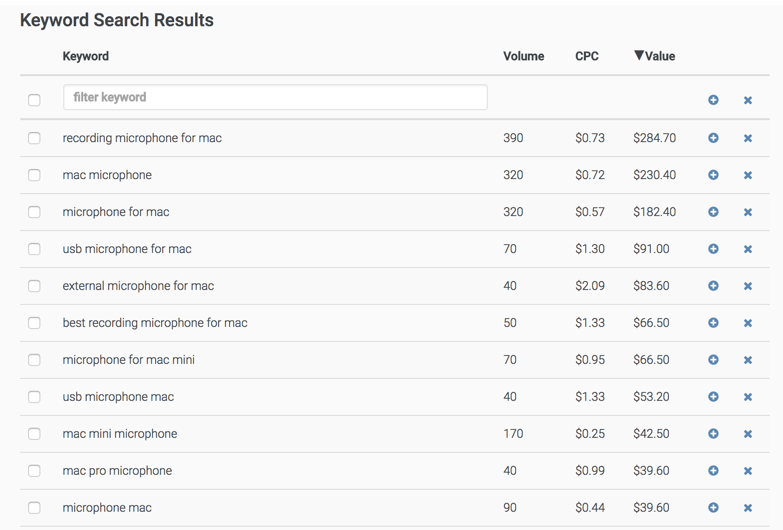My boss wants me to do some keyword research for our new lavalier microphone product, but I have no idea how to begin. Help!
Keyword research is fascinating stuff, actually, because it reveals the words and phrases that people actually use when they seek your product or service. Just about every business owner has a certain level of hubris in that they believe they know their customer really well. Except that’s often not the case, because the real world is a funny and odd place.
Take this very site, for example. Should I use the word “cellphone”, “cell phone”, “mobile phone” or “smartphone” when I write about cellular devices? What other words or phrases do people search for when they’re interested in smartphones / cellphones, anyway? Pick the wrong one to standardize upon and you could be missing out on lots of searches!
Figuring out search volume is best done with keyword research tools, but at its most basic, you can do some good keyword research by simply doing some Google searches. Really. Let’s have a look. On the Google home page, just start typing in a word or two and pay attention to the popular searches pop-up box:

Not sure what “lavalier greek” is all about, but let’s keep trying variations and see what pops up, as some words don’t have many searches so don’t get many suggestions.

This search for computer microphone offers up a lot more interesting search possibilities, and it’s clear that troubleshooting is going to be part of what you’ll want to write about on your site. But let’s continue…

Now we’re getting some good results, like “lavalier microphone for iphone” or for DSLR. Notice in just about all cases “lav” expands to “lavalier”, so it appears that using the shortened name of the word isn’t going to be beneficial. Good to know.

This might be the most interesting results of all, actually, because it shows what other words people mix in with their “pc microphone” search. “headset” “gaming” “desktop” and “usb” all jump out as additional keywords to focus upon.
Clearly you can do this sort of “poke around with Google suggestions” all day long, but at some point this should give you a good list of words and phrases that are in the universe of your product or service. Turns out it’s harder to get a sense of volume or popularity so you can compare (remember smartphone versus cellphone) but there are a lot of keyword research tools on the market. The downside is just about all of them cost $$ to use.
One of the best is built in to Google AdWords, but it’s super complicated and will take some study to learn how to most effectively use it, and that’s designed to help you run adverts, so it’s pretty close but not quite exactly what you seek. Instead there are a lot of third party tools offering the same results with a free sampler to get started. Like the SERPS.COM Keyword Research Tool…
When I feed this the search phrase pc microphone as we just did on Google, the results are very different:

Volume is relative number of searches, CPC is the estimated cost-per-click for an ad and Value is a formulaic value that SERPS.COM calculates based on volume * price: Higher value suggests a better keyword for advertising. More important, when compared with other searches with the tool, you can compare volume to see which words or phrases are more popular.
So how does mac microphone compare?

Apparently less people are searching for Mac microphones than PC microphones. No surprise, but it is surprising and interesting that “recording microphone for mac” is searched more often than the simpler phrase “mac microphone”.
These tools can get you started with keyword research, though there’s a lot more to it and we’re barely scratching the surface of what a pro could offer. Still, this offers you the chance to get a rough idea of what words and phrases are relevant for your new product and product line. Oh, and don’t forget to study what your competitors are doing too, because they might have already done the research! This isn’t the same as rip off everything they’ve done of course, but inspiration comes from many places. 🙂
Hope that helps you out, and good luck with your new microphone line. Don’t forget to compare “lavaliere” with “clip-on” too.
